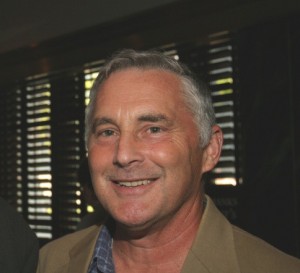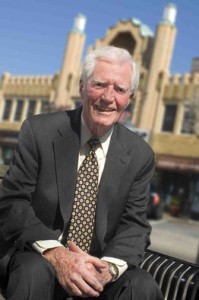♫ Have a holly, jolly Christmas;
It’s the best time of the year
I don’t know if there’ll be snow
but have a cup of cheer
Have a holly, jolly Christmas;
And when you walk down the street
Say Hello to friends you know
and everyone you meet..♫
Lyrics and Music by Johnny Marks, recorded by Burl Ives.
As in past years we would like to (finally!) take a moment from the hustle and bustle of the holiday season and wish everyone the Best of the Holidays and a Happy New Year! This year in particular I would like to thank all my guest contributors who have enriched this blog with their wonderful and thought-provoking ideas.
Our gift to everyone is a few minutes of images set to music. To see this year’s complete slide show to music (turn up your speakers!) click on the link below (please be patient it may take a few minutes to start):
For those with a photography bent, most images were taken with either a Panasonic DMS-G3 camera with the 14-42mm Lumix G VARIO f/3.5-5.6 lens or an Olympus TOUGH with an Olympus 4.5-15 mm f/2.0-4.9 lens. A few were taken on cell phones. All were taken within the last 12 months.
The music is “A Holly Jolly Christmas” which is a Christmas song written by Johnny Marks and most famously performed by Burl Ives (per Wikipedia). It is performed by the Argyle Alumni Choir, Argyle Senior Secondary School, North Vancouver, British Columbia, Canada, copyright Frances Roberts, Director. Used with permission.
We hope you enjoy the images and the music. Best wishes for the holidays and all the best in the New Year!
Prior Seasons Greetings slide shows can be viewed here:
♫ They got alien technology to make the rainbow tables with,
then in an afternoon of glancing at ‘em, secrets don’t resist
the loving coax of the mathematical calculation,
heart of your mystery sent free-fall into palpitations.
Computron will rise up in the dawn, a free agent.
Nobody knows the future now; gonna find out — be patient…♫
Lyrics, music and recorded by: MC Frontalot.
This is part 2 of the predictions for 2015! In this second part we have predictions from yet another 16 thought leaders and with the 8 in Part I (and my humble contribution) that totals 25 exciting glimpses into the future!
In this post we have:
- Jordan Furlong
- Andrea Cannavina
- Garry Wise
- John Tyrrell
- Mitch Kowalski
- Stephen Gallagher
- Joseph Kashi
- Roger Smith OBE
- Andrew Clark
- Richard Granat
- Darin Thompson
- Colin Rule
- Zbyněk Loebl
- Euan Sinclair
- Bob Denney
- Shanon Salter
- …and yours truly!
Jordan Furlong
- The CBA’s Governing Council approves those recommendations of the association’s Futures Report related to non-lawyer firm ownership or sharing fees with non-lawyers.
- Law society benchers in Nova Scotia or Ontario (or maybe a western province) endorse changes in lawyer regulation and possibly in rules surrounding equity ownership of firms.
- The Supreme Court of the United States rules in favour of the Federal Trade Commission in a case involving regulation of dental services, calling into question US lawyer regulation systems.
- Wal-Mart follows the lead of its Canadian arm and starts leasing kiosk space to low-cost law firms in outlets across the US, making basic legal services more affordable and convenient.
Andrea Cannavina
1. The Cloud will be more than just about the cloud. The shiny object syndrome will wear off and users of technology will truly care about the location, access and duplication of their data.
2. Strong growth for windows based tablets/convertibles. All my laptops have been touchscreens –so I get why non computer people “get” tablets – I just don’t think they understand just how fast/useful a touchscreen is … when you have the power of a computer behind it. (Fingers crossed Santa brings me a Surface Pro 3!!!) 😉
3. Office365 will dominate email – especially small business/corporate – easily keeping email/calendar/contacts sync’d … (without scanning/indexing) – across all manner of devices.
For over 13 years Andrea has been helping practicing attorneys, law firm administrators, consultants and business owners with the selection and integration of processes, systems and technologies to get the paying work done. She answers questions regarding telephone/reception, client, file and email administration, time and billing; achieving and maintaining a professional web presence; getting paid; and setting up/maintaining many web based services and technologies aimed at attorneys and “legal”. Andrea is recognized as the CEO of LegalTypist, Inc. a NY based legal transcription and secretarial service and founder of The Legal Connection Community. You can learn more about Andrea at: http://www.andreacannavina.com and the Community at: http://www.thelegalconnection.com
Garry Wise
The Courts
2015 is bound to be a very interesting and busy year for Canada’s courts.
After the Supreme Court of Canada’s decision in Hryniak, we can expect to see increased reliance by Canada’s litigants on summary judgment procedures, and increased willingness by the courts to make final determinations on such motions. The civil trial may well be on its last legs, in most circumstances, in our nation.
We can also expect to see increasing openness in our courts to electronic filings and digital evidence. In Ontario, this week’s appointment of Mr. Justice David Brown to the Court of Appeal marks the ascendance of the Province’s most outspoken judicial champion of technological advance in the courts. We can expect genuine progress and continuing demand from the bench for technological modernization of Court administration and procedures.
Access to justice and the influx of self-represented litigants will continue to be themes of ongoing debate by the bench, bar and public.
Our courts will tackle a number of key policy concerns, from the constitutionality of assisted suicide and the nation’s new prostitution legislation to concerns regarding citizen’s privacy and the protection of the environment.
Law Societies
Our Law Societies will have their hands full in 2015, as the continuation of self-governance and the transparency of disciplinary proceedings become increasingly controversial issues in the media.
The slow drive toward alternative business structures will pick up speed in Ontario and elsewhere, but the time may not yet have arrived for non-lawyer ownership of law firms in the nation.
Our law societies may also find themselves busy with litigation of their own, as the status of the proposed Trinity Western University law school begins its long wind through the courts.
Lawyers
The legal profession will continue to find itself under serious competitive pressures in 2015.
Technologies will continue to emerge that automate services historically provided by lawyers. Large firms will continue to suffer from disruptive changes and we may see a few additional large firms implode unexpectedly.
Lawyers will continue to use social media with increasing effectiveness and the role of the Internet in facilitating legal research, delivering legal information, and providing a platform for online legal services will see a further spike in growth.
We will see more new lawyers starting their own solo practices, and the profession will find it necessary to provide increasingly formal mentorship programs and services to facilitate their transition to practice.
Garry J. Wise was called to the Ontario Bar in 1986, and practices with Wise Law Office (www.wiselaw.net), a Toronto litigation firm with focus on Employment Law, Family Law and Civil Litigation.
He is primary contributor to the award-winning Wise Law Blog, and is also developer of WISELII, Canada’s Mobile Legal Research Tool, a free iPhone application enabling users to research Canadian case law, statutes and regulations via CanLii.
Garry has contributed to Bar-eX News, SlawTips, Huffington Post, CCH Labour & Law Newsletter, Canadian Bar Association’s Solo and Small Firm Addendum, Divorce Magazine and CCH Canadian Family Law Guide.
He has been a Continuing Legal Education presenter for organizations including the Law Society of Upper Canada and the Ontario Bar Association on social media, legal ethics, Web 2.0, cloud-related security issues and legal innovation.
Garry has been featured in the National Post, Toronto Star, LawPro Magazine, Lawyer’s Weekly, Canadian Lawyer Magazine, CCH Student E-Monthly and Toronto’s Now Magazine.
In addition to his professional and blogging activities, Garry dabbles as a writer and musician.
Garry can be reached by email at gwise@wiselaw.net. Follow Garry J. Wise on Twitter: @wiselaw
John Tyrrell
#1 Continued economic and geo-political uncertainty will be the business story of 2015 resulting in businesses coming under increasing pressure to review the costs of doing business, and … OMG even the costs of legal services, both internal and external.
#2 Another shoe (NOT the “other shoe”, this is more like a centipede) will drop and another large Canadian law firm will go the way of Black and White TV, perhaps fondly remembered but gone none the less.
#3 The Canadian legal market place will see the expansion of existing “new law” alternatives and the addition of a number new players and different models in the market.
#4 This time next year we will still be waiting for the governing bodies of the profession to decide whether or not allowing law firms to seek “investors” or adopt more “business” oriented structures is a “good thing”.
#5 About September 1 I will be pulling out this list, shaking my head and wondering where I can take my crystal ball for a tune up.
These are interesting times … enjoy the ride. All the best in 2015.
John is a Corporate Commercial lawyer who has ridden the rollercoaster of energy prices and the Calgary legal market for over 30 years. He currently practices in association with Cognition LLP. jtyrrell@Cognitionllp.com
Mitch Kowalski
How does one even begin to make predictions in a legal industry that has continually defied prediction – in a bad way? Nonetheless, here goes:
1. The Law Society of Upper Canada will continue to dither on Alternative Business Structures and will make no decision on this creature in 2015;
2. One Canadian law school will create a Centre for Legal Innovation, similar to the Centre for the Study of the Legal Profession at Georgetown University, and will start collecting data on the state of the Canadian legal industry;
3. The Federation of Law Societies of Canada will float a proposal for one regulator across all common law provinces – Benchers across Canada will be furious;
4. Trinity Western University Law School will be successful in its court challenges – Benchers across Canada will be furious;
5. One Toronto law firm will fail – lawyers will lament the passing of a “great firm” and completely forget about the support staff;
6. IBM will work with a law firm somewhere in the world to further enhance Watson’s capabilities gained from the University of Toronto experiment. This will reduce the need for law firms to scale up through the ancient practice of hiring more lawyers;
7. Canadian undergraduate students will continue failing to undertake any due diligence on job prospects in the legal profession before applying to law school;
8. The bar outside of Canada’s urban centres will continue to “grey” and many practices will simply close down for due to inflated valuations and lack of purchasers;
9. Clio will go public; and
10. Loblaw will seek to replicate Axess Law by creating PC Lawyers.
Mitch was recognized as a Fastcase 50 Global Legal Innovator in 2012, and he is the author of the critically acclaimed American Bar Association best-seller, Avoiding Extinction: Reimagining Legal Services for the 21st Century. The American Bar Association will be publishing his forthcoming book, The Great Legal Reformation, in the Summer of 2015. Mitch is a principal of Cross Pollen Advisory which redesigns how in-house counsel deliver and buy legal services. He is also a visiting professor at the University of Calgary Law School where he teaches worldwide trends in the legal services market, and what they mean for lawyers and clients.
Stephen Gallagher
Since I left the New York State Bar Association ten years ago, I have been trying to hold conversations with senior lawyers about how the aging of the workforce is something that the legal profession can no longer ignore. According to Census Bureau estimates, nearly 80 percent of the baby boomers say they want to do some kind of work in retirement. So, instead of viewing retirement as an end-point in itself, law firms and their senior partners will be far better served by treating retirement as a series of developmental steps taken by individuals over an extended period of time. Put differently, retirement today needs to be seen as more a journey than a destination.
I am beginning to see results from these conversations. Law firms everywhere are slowly beginning to focus on finding the balance to keep key people at every stage of development. This will include discussing how the years leading up to retirement should be a period of time when senior lawyers can experience new growth opportunities for themselves—and properly handled, this process should benefit the broader law firm community in many other ways. The senior lawyers that many law firms are now looking to sunset may be the untapped resources firms need to lead the talent pool of the future.
I hope these conversations will continue.
Stephen P. Gallagher, is a principal at LeadershipCoach.us, an executive coaching consultancy that works with senior lawyers, practice group leaders, and other “high potential” individuals. Stephen is an Organizational Development professional that provides lawyers and law firms with a broad range of coaching services directed at facilitating positive change.
Stephen holds a Master of Science degree in Organizational Dynamics (MSOD) from the University of Pennsylvania. He has more than 30 years of experience in working exclusively with lawyers.
Stephen is also certified as a Retirement Options coach, and as such, he helps individuals focus on the critical aspects of non-financial retirement planning.
Based in Philadelphia, PA, Stephen’s practice is committed to partnering with clients in a creative process that inspires them to maximize their personal and professional potential and at the same time enhancing professional and personal satisfaction in achieving a more balanced life.
Stephen has conducted strategic planning programs with the American Bar Association, state and local bar associations, as well as The Law Society of England and Wales, and The Law Society of Scotland. In addition to coaching lawyers, Stephen is an adjunct faculty member in the Marketing department at St. Joseph’s University in Philadelphia.
Stephen has written extensively in areas as diverse as The High Performance Lawyer, Yesterday’s Strategies Rarely Answer Tomorrow’s Problems, and Winding Down the Law Practice, Planning for Retirement He has designed and facilitated numerous bar association and law firm retreats dealing with the changing nature of law practice. The National Association of Bar Executives (NABE) published Stephen’s two part articles, LPM Programs: an Inside Look and Bar Associations in Transition II. In December 2014, Bar Leaders, a publication of ABA Division for Bar Services published another of his articles, The rise of the laptop lawyer? Senior members, lonely bowlers, and a way forward.
Stephen P. Gallagher: sgallagher@leadershipcoach.us
Joseph Kashi
Roger Smith OBE
2015 is likely to prove a significant tipping point in the development of web-based assistance on law. We are likely to move decisively beyond the notion that the internet is like an electronic book and to start to mine its interactive potential. Investment will be facilitated by government ministries seeking to save on running costs of conventional legal aid schemes and, in the private sector, from consolidation among providers allowing greater capital investment plus – in those jurisdictions. like England and Wales, that allow it – external cash associated with external ownership. Specific predictions associated with different elements of the process are as follows. Notice how well British Columbia fares in the vanguard of change.
Diagnosis, referral, triage and information
Various jurisdictions will seek to hit the bar raised by the Dutch Rechtwijzer 1.0 and re-engineer websites so that they are interactive and user-focused. Among the leaders will be the transformation planned for the MyLawBC.com and trailed in its accompanying blog. Back home, our own citizens advice bureau are following a similar path in revamping their adviceguide.org site, also happily followed by a blog at alphablog.citizensadvice.org.uk. These sites will set off a virtuous competition among similar providers in which various US jurisdictions will also participate, no doubt with many funded through the Legal Services Corporation’s Technology Initiatives Grant programme (tig.lsc.gov) for which the provision of initial sites of this kind was agreed as a priority at a technology summit in 2013. The most ambitious sites will be in jurisdictions, like my own, where the profession exerts no restriction on the provision of legal advice by non-lawyers. These will take the lead in developing the various different pathways through which a user may be directed to resolve their problem. By the end of the year, initial advice websites that simply give information in linear form will begin to look old fashioned. Users will be well on the way to expecting legal advice tailored to their needs just as they now do in relation to queries about a flight with their favourite airline.
Virtual legal practice
Private practitioners in all developed jurisdictions will explore ways of delivering services over the net. This will facilitate jursdiction-wide brands and lead to further wastage among what we in England would call the ‘High Street practitioner’. Some will fight back with distinctive, niche or personalised service but there will be a move towards what future guru Richard Susskind has called the ‘latent legal market’ ie those who will pay for legal services if they are cheap enough.
Look for developments such as more loss-leading advice on websites; more use of video and visual; more integration of video communication between lawyer and client; more use of fixed fee ‘unbundled’ services; more integration of discussion communities with legal practices; and some possibly questionable referral arrangements between what are presented as not for profit organisations and associated for profit providers. Again in jurisdictions that allow it, look for third party legal advice providers in mass areas like will-writing, probate and conveyancing. They will use centrally located lawyers using a combination of document assembly software and video to undercut private providers – as they already do in the field of legal expenses insurance.
Digital Determination
Interest in online dispute resolution (largely forms of mediation) and determination (actual binding court decision-making) will continue to expand. Any number of jurisdictions, like my own in the form of a sub-committee of the Civil Justice Council, will set up committees to study how courts and tribunals might save money by moving online. They will all think that it is a good idea but wonder how the capital start-up costs might be met. A few brave jurisdictions will get started – notably British Columbia and its Civil Resolution Tribunal (CRT) and the Dutch Rechtwijzer 2.0 programme (see below). A lot more will wait to see how well they do.
End to end services
Both the CRT and Rechtwijzer 2.0 promise end to end services that will commence in 2015. Users will contact the system with a query and end by being taken through to determination – in the CRT’s case in small claims (and strata disputes) and in the Dutch case divorce. These are immensely ambitious programmes that are paradigm-busters in the sense that they transfer a search for legal advice on a problem to a search for determination of that problem. There will be problems along the way in terms of getting the pathways right; operating a workable fee structure; dealing with opposition from lawyers and judges; integrating independent legal advice; and handling the changing relationship that a user has with the system as their case progresses. So, the year may be dominated by consequent rows but the possibilities are really exciting.
Skills-related training
The use of internet-provided skills training to help users proceed through difficult processes will expand. Assistance in advocacy by self represented litigants is an obvious area and examples like lawassist.lawaccess.nsw.gov.au/lawassist/lawassist_index.html or the Alaskan assistance in family cases at aklawselfhelp.org will be built upon. Other jurisdictions will follow the BC’s Justice Education Society in providing online parenting after separation classes and in devising interesting ‘gamifications’ of assistance to those affected by litigation who are not themselves litigants such as children of a divorcing couple. JES’s ‘Changeville” has already been bought by the California Courts to join their suite of provision.
Co-operation and convergence
One of the features of 2015 will be the growing convergence one separate worlds with an interest in assisting people with legal problems. Legal aid will meet the advice sector in jurisdictions where these are traditionally separate. Court libraries will meet both in places like BC where they have a public role. Public Legal Education folks will work more closely with legal aid providers in jurisdictions like those in Canada where they have a strong presence. Profit and not for profit providers will fit co-operate in patterns of access to justice provision. The courts will link with anyone willing to help out with what they will see as a crisis of self representation.
Not only will there be convergence, there will be co-operation (or, in some cases, simple theft of ideas) as people realise that law may be supremely national but technology is global and knows no boundaries. So, you can (actually, you have) developed programmes in BC which show the way for England and Australia. And, at least for the moment, the Dutch have a moment in the sunlight as their commitment to legal aid and technology puts them in a lead position. They are also inveterately entrepreneurial. If you are interested in this field, 2015 could be the year when you could not go to a conference without meeting a Dutch salesperson. Good for them. It should also be a similarly good year for those behind innovation in BC – which, in my view, rightly shares top spot in the field.
Roger Smith is a London-based researcher, journalist, activist and consultant on access to justice and human rights. Editor bimonthly newsletter on latest developments for International Legal Aid Group. Author of the global survey, ’Digital Delivery of Legal Services to People on Low Incomes (thelef.org). Former director of JUSTICE and the Legal Action Group. Visiting Professor, London South Bank University. Awarded an OBE in 2009.
Andrew Clark
- Courts Move to Electronic Court files for criminal file:
- As a result of continued budget constraints in the Justice sector, there will be an accelerated push to use electronic court files in court. The focus will be in criminal court as most criminal court files are now electronic. There will be a mixture of response from the bar and the judiciary – some kicking and screaming while others will say it’s about time.
- Mandatory eFilng
- The BC Courts will once again consider mandating eFiling, at least for counsel in Supreme Court civil matters as well as the Court of Appeal. BC used to be the leader when they started eFiling in 2005. Many courts in Canada and the US have now surpassed BC in terms of uptake and several implemented mandatory eFiling in 2014. Time for the BC Courts to get back to a leadership position.
- Hyper sensitivity to cyber security in the Court
- While there are many opportunities in using technology to create a more effective and efficient justice system that can result in better access to justice, sensitivities around security will continue to hamper the pace at which these technologies can be deployed. While some of the sensitivity is definitely warranted, there are many instances of where it is unwarranted and the bar for electronic security is significantly higher than it ever was for paper files. As a result, the justice system will continue to lag behind many other sectors in their use of technology.
- eTrials?
- Well, I keep predicting this and hope one year it is actually going to come true. While electronic evidence presentation has occurred in the BC Courts since the late 90’s, we have yet to embrace the current technology that is available for eTrials, that starts with eDisclosure, eFiling, electronic evidence presentation, the ability for the court to receive and store evidence electronically and ending with eJudgments. It will happen! Maybe 2015 is the year.
Andrew Clark is an independent consultant specializing in management consulting and project management in the Justice Sector. Andrew has spent the last ten years providing management consulting for a number of clients worldwide. Andrew started his career over 20 years ago in software engineering as a specialist in user interface design. Andrew worked as an IT Director for the BC Ministry of Attorney General where he was the project director for the JUSTIN project, BC’s criminal case management system. After managing a software company for 8 years, Andrew started his own consulting company. Throughout his career, Andrew has focused on Project Management and Team Building within an organization. He is a UVIC graduate with a B.Sc. and an MBA. Andrew is also a Project Management Professional certified by the Project Management Institute and an associate faculty at Royal Roads University where he has taught project management education within the MBA program for 6 years.
For the past nine years, most of Andrew’s work has been in the Courts, highlighted by his work in British Columbia. He’s also had the opportunity to work with the Courts in Vietnam, Rwanda and the Yukon. Currently Andrew is managing the BC Provincial Court Scheduling Project.
Andrew has spoken at several conferences including the Court Technology Conference (CTC), the Canadian Forum on Court Technology, the Center for Legal and Court Technology Affiliates Conference and the Pacific Legal Technology Conference.
Email: andrewclark.willowtree@gmail.com
URL: http://www.linkedin.com/pub/andrew-clark/4/247/937
Richard Granat:
- The New ABA Commission on the Future of Legal Services will have little impact on the present structure of the legal profession in the United States.
- The American Bar Association will continue to defer any serious consideration of alternative business structures in the United States.
- The number of solos and small law firms that use a client portal to serve clients online will remain a relatively small percentage of the 600,000 solos and small law firms in the U.S.
- There will be continued resistance in the U.S. by state bar associations to non-lawyers providing direct services to U.S. consumers, despite the fact that 80% of consumers remain unserved by the legal profession.
- The majority of U.S. law schools will continue to prepare law students for large law firm practice, despite the fact that most of their graduates will end up in solo and small law firm practice. Despite the impact of legal technology on the delivery of legal services, most law schools will not teach this subject. As a result, law school enrollments will continue to decline.
Richard Granat is a lawyer and a recognized expert on the delivery of legal services over the Internet. He is also the Founder of Granat Legal Services, P.C., in Baltimore, Maryland, one of the first virtual law firms in the United States. He is also the founder and CEO of DirectLaw, Inc., a virtual law firm platform provider and Co-Director of the Center for Law Practice Technology. Florida Coastal School of Law.
Richard also had served as Co-Chair of the eLawyering Task Force of the Law Practice Management Section of the American Bar Association and is a member of the American Bar Association Standing Committee on the Delivery of Legal Services. In 2009, the ABA Journal recognized Richard as one of 50 Legal Rebels, throughout the Unites States – individuals who are engaged in changing the legal profession. In 2010, Richard received the Louis Brown Lifetime Achievement Award from the American Bar Association in recognition of his innovations in the delivery of legal services and in 2013, the ABA James Keane Award for Excellence in eLawyering.
Darin Thompson:
- Law students at the University of Victoria and Osgoode Hall will have access to new Legal Information Technology courses. Taught by a team of instructors that include an ODR expert, an electrical engineer / legal software entrepreneur and a legally trained Google software engineer, the courses will include broad introductions to technologies for use in the legal services, dispute resolution and justice administration sectors. Some coursework will include hands-on experiential learning with some existing products and applications. Students will also have a chance to engage in an application design exercise that will encourage them to imagine a new legal technology application to address an existing problem or an improvement to justice and legal services.
- Member States in the European Union will be required to implement Online Dispute Resolution (ODR) rules to give effect to the legislated ADR / ODR scheme for EU consumers.
- We should see a report on the suitability of ODR for civil disputes from the UK Civil Justice Council Advisory Group led by Richard Susskind. My own reflections on this subject can be reviewed in a series of articles published by the UK Society for Computers & Law linked from this page.
- The United Nations Commission on International Trade Law (UNCITRAL) ODR project will continue to struggle with seemingly intractable disagreements between some delegations over law and policy-related aspects of the ODR Working Group’s attempt to create a set of rules for low value, high volume disputes. These problems have been outlined well in a series of Slaw posts by Karim Benyekhlev and Nicolas Vermeys.
Darin Thompson is a lawyer with the Ministry of Justice in British Columbia, Canada. He has helped to initiate multiple projects using online dispute resolution (ODR) and is a member of the Canadian delegation to the United Nations Working Group on ODR.
In 2014/15, Darin will be co-instructing new Legal Information Technology courses at two law schools.
Darin also sits on the board of the Vancouver-based Justice Education Society.
Darin has BA and JD degrees from the University of Victoria and an LLM (Innovation, Technology & Law) from the University of Edinburgh.
Colin Rule:
Colin Rule
I work at the intersection of conflict resolution and technology.
I am the Chairman and COO of modria.com, an online dispute resolution service provider in Silicon Valley, building ODR tools like the Mediation Room and the Gebruikersjury. From 2003 to 2011 I was Director of Online Dispute Resolution at eBay and PayPal. I am a Fellow at the Gould Center for Conflict Resolution at Stanford Law School and I work closely with the National Center for Technology and Dispute Resolution at UMass-Amherst.
I’ve written a book on the subject: Online Dispute Resolution for Business.
I am @crule on Twitter, on Facebook and LinkedIn, and I blog at novojustice.com. Some of my writing and recent presentations are available at colinrule.com/writing/.
Zbyněk Loebl
Here is my prediction:
In 2015 there will be a breakthrough in Internet in relation to empowering customers. Customers will receive first mass-market tool which will start becoming popular in 2015 and will start a new industry. It will change completely the current ways of doing business on the net by making customers free and decisive in defining terms regarding privacy, customer dispute resolution etc. The tool will be extremely simple, very different from the current theoretic discussions on VRM (vendor relation management), yet implementing the ideas of VRM.
Next year will be extremely exciting, I feel it in the air, sg. like a year when the impressionists started to sell their paintings to the galleries…
Have a great Christmas time and best personal wishes for the next year, we will have fun.
I founded Youstice as a globally available tool for buyers and sellers to resolve their shopping issues easily and efficiently.
Previously, I was a member of Rowan Legal, a regional law firm in Central and Eastern European region, where I specialized in advising clients in technology-related projects. Prior to that, I managed an international team which prepared and implemented a new ADR Center for .eu related disputes attached to the Czech Arbitration Court. This ADR Center has become a sole ADR Provider approved by the European Commission. The ADR Center started its operations in February 2006 and so far has received over 1,000 complaints. The ADR Center is capable of administering .eu related disputes in all but one official languages of the EU (the exception being Maltese).
Euan Sinclair
Predictions for 2015:
- Ross Watson, associabot, will continue to cause equal measure of intrigue and concern within different parts of the legal profession. However, the commercial deployment of legal artificial intelligence (or LAI, as it will become known) will still be a decade away.
- To anticipate LAI, however, progressive law firms will begin thinking of legal processes as a critical path or decision tree (rather than something that is instinctive to lawyers) building on their work on Legal Project Management (LPM). Only law firms with a number of years’ experience of LPM will have sufficiently granular datasets to take advantage of LAI in the next decade.
- Client-facing LPM became table stakes for winning new work in Canada in 2014. But now progressive law firms’ own internal processes will become better managed by adopting Lean principles or Six Sigma, or a mash up of both. Implementation of these disciplines require strong law firm leadership and therefore we will see the rise of the professional law firm CEO.
- 2014 was a bad year for cybersecurity. More people than ever depended on the cloud and the “internet of things” became smarter, with all sorts of devices now sending and receiving data from the cloud. Also hackers’ sophistication became more fully appreciated, particularly after the Sony hack. Law firms will therefore consider using encrypted emails or secure portals on a private cloud to communicate with clients. Whether Blackberry succeeds or fails in the handset market will be a sideshow. The company will retrench and grow with its expertise of secure software and servers, leading to it being acquired by Microsoft in 2015 or 2016.
- On the macroeconomic front, Canada will experience severe headwinds in the economy. It is sad to see Canada falling into the same trap as the UK, whose economy was very successful before 2009 but heavily dependent on financial services and real estate. At the same time, the UK allowed its manufacturing base to erode. Canada today is just as dependent on resource extraction and real estate and is unable fully to take advantage of the battered loonie. The recent depreciation in commodity futures will continue to take its toll in 2015. We will see a rise in interest rates towards historic norms–perhaps sooner and sharper than most people expect.
- There will be a “grey swan” financial shock in 2015 (choose from any of the ten known potential flash points). Maxed-out Canadians are almost uniquely badly positioned to weather any economic storm, far less a maelstrom. There will inevitably be a real estate correction in 2015, but it will take some time to percolate as sellers hold on to their anchor prices, leading a glut on the supply side before prices slide precipitously. Oversupply of commercial real estate will also cause a problem. Consumers will start to shift their shopping habits towards online shopping or clicks ‘n mortar fulfillment centres, exacerbating the decline.
- The “more-for-less” demands from clients will increase and finally penetrate, when some large firms lose lucrative and long-standing clients to more agile rivals. Smart clients will appoint panels of law firms by competitive tender and get them to collaborate for the client’s benefit, while maintaining competitive tension amongst them. Law firm selection will be handed to procurement officers, who don’t have buddies from law school.
- In this unhappy climate, some law firms may seek a defensive merger to paper over the cracks of their inefficiencies, but the heyday of law firm mega-mergers is over.
- If Heenan Blaikie’s demise taught us anything, it’s that a drop by as little as 15% of profit per partner can put the bonds of partnership under strain. Another lesson from Heenan Blaikie and also Bingham McCutcheon is that leading law firms are ready and willing to adopt a vulturistic approach and cherry pick the practice units they want without having to deal with legacy issues that arise in a merger.
- With a weakened loonie and some firms in financial distress, there will be increased International interest in the Canadian market for US and UK law firms. Those firms are five years ahead in adapting to the new economic reality and therefore they will make considerable inroads into the market. UK-based law firms will find the Canadian market especially of interest, as Canadian markets open up to the European Union when the Comprehensive Economic and Trade Agreement (CETA) is ratified towards the end of 2015 or in 2016.
- At the other end of the spectrum, 2015 will be the year of innovative start-up law firms. These agile firms will start offering à la carte legal services for new areas such as M&As. “Wal-Mart” law, introduced by Axess Law will gather pace as those firms anticipate being able to attract outside investment in the near future–and perhaps float on the TSX-V.
- I will complete the manuscript of my new book on how lawyers can create value in the digital economy.
Euan Sinclair was a lawyer for 15 years in Scotland before moving to BC in 2011 to become Director, Knowledge Management at Lawson Lundell LLP. He also holds an MBA from Edinburgh University and a LLM in IT law from Strathclyde University, where he was taught by, amongst others, Professor Richard Susskind. Euan called at the BC bar in September and specializes in technology law.
Bob Denney
- Two of the hottest practice areas will be Energy – all forms including “clean” – and Elder Law because we’re all getting older.
- Big firms will continue to discuss mergers with smaller firms but some of these will not happen and some of the recent mergers will fail. A repeat of my prediction for this year..
- The continued growth of technology will mean more non-lawyers and entities will provide efficient and reasonably priced legal services.
- Cybersecurity will become the number one concern for all firms, regardless of size.
- Mid-size and smaller firms, as well as solos, will capture more of the legal market because of: 1) Technology and 2) Lower rates than the large firms.
- Corporations and large non-profits will continue to expand their legal departments and keep more work in house.
- Non-lawyer ownership of, or at least investment in, U.S. law firms will continue to be a hot issue and will eventually be approved. A repeat of my prediction two years ago.
- Applications to law schools will continue to decline.
- More women lawyers will be selected for firm leadership positions and the overall income of women lawyers will increase substantially.
Shannon Salter
Shannon Salter is the Chair of the Civil Resolution Tribunal. She earned her BA (2001) and LLB (2005) from the University of British Columbia, and her LLM from the University of Toronto (2011). Ms. Salter clerked with the British Columbia Supreme Court, practiced litigation at a large Vancouver law firm for several years, and has served as a vice chair of the Workers’ Compensation Appeal Tribunal . Ms. Salter is also a commissioner of the Financial Institutions Commission, vice president of the British Columbia Council of Administrative Tribunals, and a past board member of the College of Registered Nurses of British Columbia. She teaches administrative law at the UBC Faculty of Law as an adjunct professor and has been actively involved in providing pro bono legal advice and representation throughout her career.
David J. Bilinsky
With everyone’s great predictions, coming at the end of the post is a bit of a challenge! However, there is a theme to my predictions and they are breaking barriers. Here goes:
- The courts and judges will further appreciate the change that technology hath wrought and is continuing to make in the legal arena and that they will not be immune to these changes. This is only enhanced by the powerful voices calling for increased access to justice and affordable justice for all. By way of breaking barriers, there will be an ever-growing realization that part of this solution will be for greater implementation of technology at all points in the court process from e-filing all the way to seeing Online Dispute Resolution as an alternative method to resolving matters in court. Certain members of the judiciary will oppose these changes while other members will see this as a necessary first step or series of steps that need to be taken to modernize and bring the civil and criminal dispute resolution process into the present and provide more affordable justice to all.
- That law school application numbers across North America will continue to decline as increasing numbers of bright young minds realize that better opportunities lie elsewhere. Some law schools will resist any changes to how they educate while more enlightened schools will break out of the black letter law barrier and start addressing the growing voices that law schools incorporate technology, business, entrepreneurship and innovation into their programs.
- A Law Society or two in Canada will break the barrier on non-lawyer ownership of law firms and allow Alternative Business Structures in Canada. The UK experiment will flourish here in Canada and as a result, there will be the emergence of new entities that provide legal services on different points on the price/demand curve.
- The biggest law firms in Canada realize that the playing field has dramatically changed and that there has been a gradual power shift in favour of the clients that will rework the economic model of these firms. Furthermore the latest generation of lawyers will increasingly reject climbing the pyramid hierarchy with its uncertain path from associate to partner and venture out into smaller more nimble niche practices (and into ABSs).
- Watson will not only be a barrier-smasher, the reverberations will reach deep within the legal profession. “Disruptive innovations are innovations that transform products that are complicated and expensive into things that are affordable and accessible” per Clayton M. Christensen at Harvard Business School has stated. Once Watson has emulated lawyers and can do what we do better than we can (computer can already play chess better than the best of the best) then whomever owns that technology will forever change the legal landscape.
- Online Dispute Resolution will continue to expand into new tribunals and forums, both private and public. ODR’s ability to resolve disputes quickly, easily and inexpensively will keep breaking down barriers once different entities realize that eBay’s ability to resolve millions of disputes using ODR techniques can be replicated in different settings.
- In another barrier-smashing exercise, in order to address access to justice issues, the proposed merger of the Society of Notaries Public of British with the Law Society of British Columbia will occur and the joint entity will create new niche providers of discrete legal services with qualifying examinations and designations. This will be looked at carefully by other jurisdictions seeking to promote access to justice.
Thanks to everyone for chipping in and providing their best predictions for 2015 and beyond. However as well all know no one knows the future…we just have to be patient and live it!
Happy Holidays, Merry Christmas and Happy New Year!
Part 1 of the Predictions can be found here.
♫ I can see clearly now, the rain is gone,
I can see all obstacles in my way
Gone are the dark clouds that had me blind
It’s gonna be a bright (bright), bright (bright)
Sun-Shiny day…♫
Music, lyrics and recorded by Johnny Nash.
This is the best time of the year in terms of being able to ask so many dear friends to put on their thinking caps, gaze into the future and share with us their vision for what is in store for the legal profession in 2015!
We received so many great ideas that this post is going to be published in two parts. Part 2 will be published on Monday Dec 22, 2014.
Thanks to all these thought leaders whose visions will be here in Part 1 or Part 2:
- Sharon Nelson
- Nicole Garton
- Ross Fishman
- Dr. Frank Fowlie
- Michael McCubbin
- Nikki Black
- Andre Coetzee
- Simon Chester
- Jordan Furlong
- Andrea Cannavina
- Ann Halkett
- Garry Wise
- John Tyrrell
- Mitch Kowalski
- Stephen Gallagher
- Roger Smith
- Andrew Clark
- Joseph Kashi
- and yours truly!
And without any further ado, here are the predictions!
Sharon Nelson:
- Cybersecurity is now universally the chief worry of large firms. We have already concluded that we cannot keep determined intruders out. While law firms will continue to try to keep them out, 2014 showed the mantra shifting to “detect and respond.” My prediction for 2015 is that those who hack into our systems will spend a lot of time and effort to make detection harder. What do you do when breaches are all but invisible, even to the best of the best? I suspect we’ll find out.
- The popularity of tablets that can really take the place of a laptop (I wouldn’t travel without my Microsoft Surface Pro 3) will soar.
- Now that IBM has announced that Watson will enter the legal market, you can bet that Watson will replace humans at an ever-increasing rate. Watson can do the legal research and analysis in near real-time, can predict outcomes (should you settle or go full steam ahead?) and search data to determine the probable budget for a case. The list goes on and on, but I believe Watson is a much greater danger to legal jobs than Legal Zoom and its brethren.
Sharon D. Nelson, Esq. Sharon D. Nelson, Esq., is the President of Sensei Enterprises, Inc, a digital forensics, information security and information technology firm in Fairfax, Virginia. Ms. Nelson is the author of the noted electronic evidence blog, Ride the Lightning and is a co-host of the Legal Talk Network podcast series called “The Digital Edge: Lawyers and Technology” as well as “Digital Detectives.” She is a frequent author (twelve books published by the ABA and hundreds of articles) and speaker on legal technology, information security and electronic evidence topics. She was the President of the Virginia State Bar June 2013 – June 2014. She may be reached at snelson@senseient.com.
Nicole Garton:
- There will be continued uptake of mobile devices, cloud computing and social media by lawyers in small, mid-size and large firms alike.
- In an age of decreasing loyalty, ubiquity of information and outsourcing, technological advances will permit smaller firms to outperform their large and mid-sized competitors as more efficient, cost-effective deliverers of legal services.
- And the billable hour is not dead and has no chance of extinction anytime soon, despite what pundits may say on www.slaw.ca and otherwise!
Nicole Garton is a lawyer, mediator and parenting coordinator and practices in the areas of wills, estates and family law matters.
Nicole is the principal of Heritage Law, which has been described in the media as “one of the most streamlined, automated and forward thinking legal business models in Canada.” Nicole has won awards in recognition of Heritage Law’s innovative structure and effective use of technology, including the Canadian Bar Association BC Branch Work Life Balance Award and the Business in Vancouver Top Forty Under 40 Award. Nicole is also the principal of Heritage Trust, which will provide executor, power of attorney, trustee and escrow services, commencing sometime in mid 2015.
Ross Fishman:
1. IBM’s Watson technology will become the legal profession’s game-changer technology.
It may take a while, but it will ultimately provide every small-town solo generalist with the same insight and expertise possessed by the highest-level, most narrowly focused specialist at the world’s largest law firms.
Dr. Frank Fowlie:
I’d like to offer prediction that one of the areas ripe for the adoption of ODR is with Sport. In Canada we have a very well developed and respected technology assisted ODR system with the Sport Dispute Resolution Centre of Canada. The SDRCC is established in the Physical Activity and Sport Act, and has been in existence for over 10 years.
The SDRCC deals with disputes ranging from doping discipline cases, to team selection, athlete carding, or general dispute resolution. The SDRCC does technology assisted mediation and arbitration. I am a mediator with the Court of Arbitration for Sport (CAS) out of Lausanne, Switzerland. My view is that Sport, either through National Sports Organizations, National Olympic Committees, Multisport Games, or International Sport Federations will increasingly turn to ODR.
I foresee that the SDRCC Canadian built technology will serve as a model for the above noted sporting bodies. Presently, for example, CAS opens an Ad Hoc court at the site of an Olympic Games some two weeks before competition to be able to deal with athlete or team accreditations. ODR would allow for a longer window, with the Ad Hoc members still in their home locations. I think that ODR can also be helpful to CAS when it potentially dealing with participants from across the globe who now must convene in Lausanne for mediations or arbitrations. For example, a sport dispute could involve activity in a multisport games in South America, with competing team from Oceania and Africa, with a named mediator from North America, and a court registry in Switzerland. There is great complexity and expense in drawing all of these parties to one spot at one time for a mediation.
ODR provides an opportunity for prompt, cost effective and relevant dispute resolution.
http://www.crdsc-sdrcc.ca/eng/home
Happy New Year!
Dr. Frank Fowlie is presently the Ombudsman at the International Organization for Migration in Geneva. He was previously the inaugural CEO of InternetOmbudsman.Biz. In addition, Frank Fowlie was the inaugural Ombudsman at the Internet Corporation for Assigned Names and Numbers(ICANN).
ICANN is the agency which administers the global domain name system which serves as the backbone for the Internet. He served as the Ombudsman from November 2004 to January, 2011.
Michael McCubbin:
I will step out on a limb and join those whose names can go down in history for the inaccuracy of their predictions. Let me toss out a few and hope that I hit on one of them:
- All clients will begin asking questions about data security as concerns proliferate and more lawyers become digital. Lawyers are reasonably good about it, but the problem remains that most of our efforts are frustrated by the insecurity associated with services like Gmail which our clients often use. I have only had 2-3 clients who even bothered using my secure client portal in Clio – I think the insistence on this kind of option will appeal more to clients now that we see how Jennifer Lawrence and Sony feel about weak data security.
- We are going to start seeing larger tablets and way more touchscreens (touchscreens will become the norm in new devices in 1-2 years)it only took 5-6 years for colour screens to take over in the cell phone market). Why is the standard tablet not 8.5×11”? People think I have a large, ancient laptop with my 17” screen, but the reality is that I want the screen space to read and work with multiple documents. I was just speaking to my dad this morning, who is raving about my mom’s new Microsoft Surface Pro 3. It looks great and its features are those of future devices, but I want a bigger screen. In the office, I set my 17” laptop next to a 24” external monitor for an extended desktop, and I still would like my laptop screen to be bigger.
- Courts will continue to move (far too slowly) toward digital practices and not just in the admission of digital evidence…PPT in court, paperless communications, etc. I did a Passenger Transportation Board hearing last week. Virtually all pre-hearing matters and even the exchange of much of the evidence during the hearing, occurred via email. It was much easier and more convenient for all involved, particularly as it involved over 20 different parties (lawyers, clients, and Board members/staff included) spread around the province.
- Apps geared toward delivering tangible value to clients and not just making lawyers’ lives easier. There have been a few launched and crashed (like Launch Lawyer), but there is room for someone to make a move in this market in a substantive way. There are many ways in which apps could be rolled out to the client’s benefit, but lawyers are not getting into this, likely for the same reason that many of us do not even know how to type.
- We will find out if Ross is the real deal: http://www.theglobeandmail.com/report-on-business/industry-news/the-law-page/university-of-torontos-next-lawyer-a-computer-program-named-ross/article22054688/. OK…maybe we’ll only get a taste next year, but if this is the kind of product that can be scaled and rolled out to the legal profession for a subscription fee similar to that of Clio, Quicklaw, etc., then it will change things. It will take the grunt work out of lawyering, mean that the quality of research conducted will not be nearly as important as actual human judgment and analysis once that research is done. That will mean that a lot of large law firms will not need to hire droves of articled students, junior associates, and paralegals. It will also mean that productivity will dramatically increase, so clients will get more bang for their buck.
- Increasingly user-friendly lawyer software. This will include integrating DMS, chronology generators, discovery documents (including XFD transcripts) and making it really usable with tools like hyperlinking etc. Software like PC Law or Worldox is not nearly as user-friendly as Clio or the kind of simple, effective UIs we see in most mobile apps. The fact that a device as complex as a smartphone comes without a user manual should tell you just how user-friendly our software should be.
Michael draws on a broad variety of life experience that allows him to understand and relate to most clients that walk in the door.
He opened his office with the view that there was a better way to practice law, one that avoids the needless expense of conventional law firms and focusses on client outcomes. Today, his clients value things like not being charged for printing and file storage fees, as well as the responsive, efficient service associated with a digital practice that still has a bricks & mortar office in a Vancouver heritage building.
Michael frequently speaks on legal technology issues and participated in one of the first paperless Court of Appeal hearings in British Columbia. He is an active member of the Trial Lawyers Association of BC and sits on its Legal Aid Action Committee.
Niki Black:
In 2015, lawyers will become more comfortable with the concept of web-based computing and will increasingly utilize cloud computing software to help manage and streamline their law practices. Similarly, wearable technology will make its mark on the legal profession and upon the release of Apple’s Watch in early 2015, you’ll see more lawyers incorporating smartwatches into their daily workflow.
Nicole Black is a Rochester, New York attorney and the Legal Technology Evangelist at MyCase.com, a law practice management software company. She is the author of “Cloud Computing for Lawyers” (2012) and co-authors “Social Media: The Next Frontier” (2010), both published by the American Bar Association. She also co-authors “Criminal Law in New York,” a Thomson West treatise. She writes a weekly column for The Daily Record and has authored numerous articles and has spoken at many conferences regarding the intersection of law, mobile computing and Internet-based technology.
Andre Coetzee:
Here are some of my predictions:
- The amount of data that is produced and stored has increase exponentially over the years. Having one centralized search tool that can search any data a user has created or has access to both on their local network as well as data that is stored on the Web i.e. a user can search and get quick access to their data whether it be an email, in a proprietary database or in a Word document is going to be a trend.
- The ability to be able to integrate legacy legal applications therefore getting rid of duplicate data entry and preserving data integrity.
- More people want to use whatever device they want at work. The trend of bring your own device (BYOD) will therefore continue and is becoming the norm. This BYOD trend will also drive more firms to seek online services and products so as to simplify integration.
- Bigger focus on going paperless and being more efficient process wise. This will reduce costs and increase efficiency.
- More and more lawyers starting smaller boutique firms. The smaller law firms will be leverage technology and internal processes and practices to be more efficient which will impact their bottom line. They will also change and be more creative the way they bill their clients. They will also be innovative the way they practice law (depending on the law they practice) by coming up with products and services that can be quickly and more easily produced and customized.
- PC sales will continue to decrease and mobility devices such as tablets, smartphones, Ultrabook’s will continue to increase – this is driven by BYOD
- The hype is over and hence more firms will move from on premise IT infrastructure to hosted products and services. Security, disaster recovery and backup, management costs and standardization being the biggest drivers for the move.
- A heighted awareness regarding compliance and security for Canadian law firms using Cloud Services.
- Firms who are have on premise PCs don’t move to Windows 8 and wait for Windows 10. The start button is back in Windows 10 and hence be an easier transition for firms.
- The Canucks will win the Stanley Cup – we can always live in hope 🙂
Andre is a director of i-worx. i-worx is a premium managed service provider focusing on enhancing productivity through virualization infrastructure solutions. OfficeOneLive i-worx’s flagship solution affords companies the ability to access virtual desktops in the data centre
Specialties:Project Management, Business Analysis
Simon Chester:
- The Ipad becomes the device of choice in law firms. So long PCs.
- Blackberry’s revival sputters. Lawyers are among the last to abandon their beloved devices.
- The first significant external investments in Canadian law firms happen in Halifax and Winnipeg, when Slater & Gordon establishes a bridgehead in North America. Toronto firms are still waiting for their Law Society to make a decision, and to figure out the fine print of regulating entities not individuals. Or rather both individuals and their firms.
- Another Canadian firm follows Heenan Blaikie over the cliff. Could it be in the oil patch?
- Other Canadian Law Societies follow the leads of the Nova Scotia Barristers Society, the Law Society of Manitoba, the Barreau du Québec and the Canadian Bar Association’s Futures Report in completely rethinking their regulatory stance, encouraging innovation unless there is an obvious threat to consumer interests or professional values. American observers are horrified. English and Australian commentators see Canada as just playing catch-up.
- Privacy Commissioner lambastes law firm security precautions in light of major data leaks from hacking attacks.
- Biometric password protection becomes a standard precaution. And firms no longer hand out unencrypted flash drives.
- TWU Law School sets up to train paralegals and legal technologists. Unless it can become a faculty of dentistry.
- Supreme Court of Canada further constitutionalizes the status of the legal profession in its decision on the application of money-laundering laws to the profession.
- A major Bay Street law firm will discover Twitter.
AND
The Seventh Pacific Legal Technology Conference is a huge success – not much of a prediction that one.
Simon Chester is a law firm general counsel who has spent most of 2014 helping manage the largest law firm dissolution in Canadian history. His earlier career included law teaching, government service, senior positions in bar associations and organisational consulting.
For twenty years, he has helped law firms navigate the complex and shifting landscape of professional regulation and solve an array of professional crises that threaten regulatory compliance, liability risk and reputational harm. He is one of Canada’s leading experts on conflicts of interest. With roots in three continents, he is a global lawyer, qualified in both Europe and North America.
Simon is a frequent commentator, writer and master presenter, delivering high-energy, provocative presentations to legal conferences around the world about change in the law and the pressures that firms face.
A technological innovator throughout his career, he has earned an international reputation for his insights into the future of legal practice.
Thanks to everyone who contributed and helped all of us part the clouds of the future so we can see clearly now! Stay tuned gentle reader…Part 2 will be published on Monday!
♫ If you should see me walking
Through your dreams at night
Would you please direct me
Where I ought to be
I’ve been looking for a crystal ball
To shed the light
To find a future in me…
To find a future in me…♫
Lyrics and Music by: Tommy Shaw, recorded by Styx.
To say that we have been thru a tremendous time of change in the legal profession is a wee bit of an understatement. Furthermore I believe that the rate of change is accelerating. This means that the changes that are coming at us like a Tsunami are totally unprecedented. New competitors, new business structures, new technology, new ways of resolving disputes, new ways of communicating, new devices and services…there is hardly a corner of the legal profession that will not be impacted. Then there are all the pressures from outside the legal profession to increase access to justice and bring the legal system within reach of the man on the Clapham Omnibus. Of course a tremendous time of change is also a tremendous time for opportunity.
Last year we heard from:
- Jordan Furlong
- Ross Fishman
- Sharon Nelson
- Ann Halkett
- Richard Granat
- Nicole Black
- Colin Rule
- Brian Mauch
- John Zeleznikow
- Michael Downey
- Robert Denney
- Mitch Kowalski
- Buzz Bruggeman
- Andrew Clark
- UnitedLex
- and yours truly!
It is precisely at this juncture that I am calling on my friends, colleagues and readers to submit their predictions for 2015 in order that all of us can benefit by the collective thoughts and gaze into the crystal ball to shed the light ..and see where we stand …in order to find a future in all of us..
♫ Inch by inch, row by row, I’m gonna make this garden grow
All it takes is a rake and a hoe and a piece of fertile ground…♫
Lyrics and music by: David Mallett, recorded by: Peter, Paul & Mary.
Abraham Lincoln is credited with saying: “The best way to predict your future is to create it”
Brian Tracy in his blog talks about the Golden Hour – a time that you set aside at the start of your day to work on the most important task you will have for your lifetime – namely your personal development.
Brian states:
[T]ake 30-60 minutes and read something motivational, inspirational or educational. Be sure that the first thing you put into your mind in the morning is positive, healthy and consistent with the kind of life you want to lead.
A colleague of mine, Tom Grella, has been following this philosophy for as long as I have known him. He takes an hour a day to read books and study leadership as it applies to lawyers. His time invested in this activity has paid off in spades.
Tom, the managing partner of McGuire, Wood & Bissette in Asheville, N.C., in 2012 was named the recipient of the Samuel S. Smith Award by the American Bar Association’s Law Practice Management Section.
“I cannot think of a more deserving honoree than Tom Grella. He epitomizes everything this award was created to recognize,” said Thomas Mighell, chair of the ABA Law Practice Management Section. “Tom stands out as a leader in LPM, the ABA and his law firm. His commitment to the improved growth and education of law practice management is steadfast, as demonstrated through his continued participation and leadership in LPM section activities.”
The lesson here is to start – today – in investing in yourself to become the person that you wish to be. Inch by inch, day by day, you will be making progress towards your goal.
Brian Tracy has great advice on how to make this happen. He says:
After you have completed your morning reading, take a spiral notebook and write out your top 10-15 goals in the present tense, exactly as if you have already achieved them. Write goals such as, “I earn $100,000 per year”; “I weigh 165 pounds and am superbly fit”; “I drive a brand new grey BMW”; “I live in a beautiful 3500 square foot home” and so on. Rewrite your list of goals every morning without referring back to the goals you wrote the day before. This is a very important success factor for you to practice in order to achieve your goals.
Only you will know what your goals are.. eHow says:
Think about what you value in life. Your goals and aspirations need to be in line with your values in life. Defining your values will help you to set a direction for your goals and keep you focused and on track.
Your goals can be as big and as broad as your imagination. They could be to help your family and your children excel. They could be to make your business succeed. They could be to build your relationship with your spouse to be strong and powerful. Or they can aspire to achieve world peace and help end hunger.
As Ralph Waldo Emerson said: “Dare to live the life you have dreamed for yourself. Go forward and make your dreams come true.”
(cross-posted to tips.slaw.ca)















































